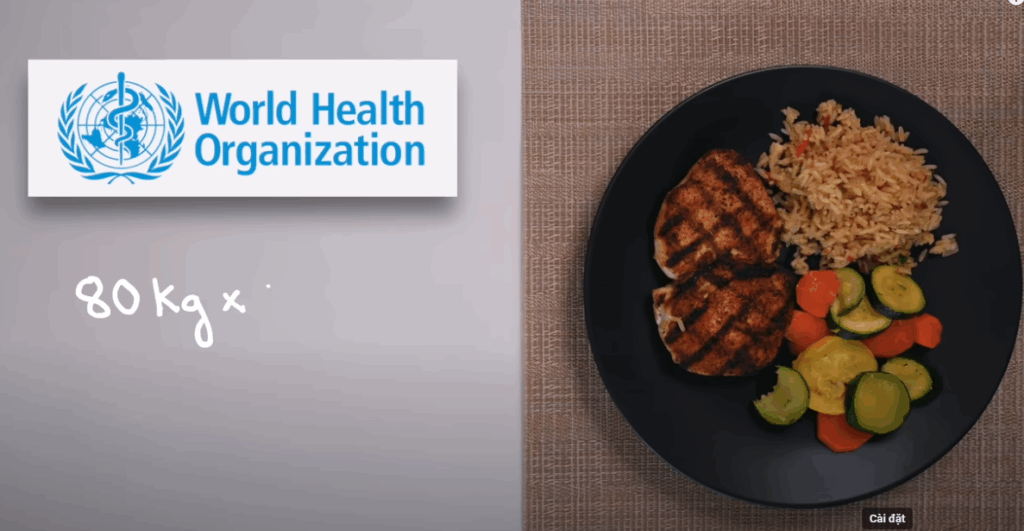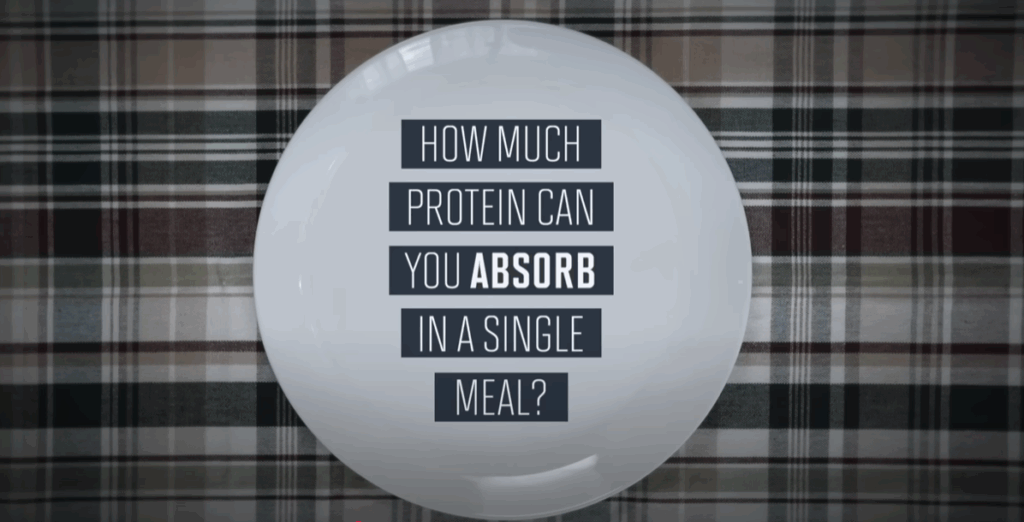How Much Protein Do You Really Need? The Truth for Muscle Growth, Fat Loss, and General Health
Protein is one of the most talked-about nutrients in the fitness world—and for good reason. Whether your goal is building muscle, burning fat, or maintaining a healthy body composition, your daily protein intake plays a crucial role in your results. But with conflicting advice circulating online, it’s no surprise that many lifters are still unsure about how much they really need.

This guide will break down the current science on protein intake for different goals—bulking, cutting, and recomposition—while also addressing common myths around absorption, quality, and timing.
Recommended Protein Intake for General Health vs. Muscle Growth
The World Health Organization (WHO) suggests that sedentary adults only need about 0.8 grams of protein per kilogram of body weight per day—roughly 0.36 grams per pound. For someone weighing 180 pounds (or about 82 kg), that comes out to only 65 grams of protein per day.
While this may be sufficient to prevent deficiency, it’s far from optimal for anyone engaging in resistance training or seeking to build and preserve muscle mass. Research in sports nutrition clearly shows that higher intakes are beneficial, especially when paired with weight training.
How Much Protein You Need When Bulking
If you’re eating in a calorie surplus to build muscle (also known as bulking), your body is well-fed and unlikely to break down muscle tissue for energy. Because of this, you don’t need as much protein as during a cutting phase.
Current recommendations suggest between 1.6 to 2.2 grams of protein per kilogram of body weight per day—roughly 0.7 to 1 gram per pound. That means a 180-pound individual should aim for about 125 to 180 grams of protein daily when bulking.

Optimal Protein Intake for Fat Loss
When you’re in a calorie deficit, your body turns to stored energy—including fat, but also muscle tissue if you’re not careful. To protect muscle mass during a cut, it’s important to raise your protein intake.
Most experts recommend 1.8 to 2.7 grams per kilogram (0.8 to 1.2 grams per pound) during fat loss. The leaner and more active you are, the higher you should be on that spectrum. For example, a 180-pound athlete dieting to get shredded may benefit from eating 200+ grams of protein a day.
Protein Needs for Body Recomposition
Trying to lose fat and gain muscle at the same time? Known as recomposition, this strategy usually requires you to eat at or just below maintenance calories while training effectively.
Protein intake in this case can resemble bulking guidelines (1.6 to 2.2 g/kg), though some studies suggest going slightly higher—especially if you’re lean or experienced. One simple method proposed by researcher Eric Helms is to aim for 1 gram of protein per centimeter of height. So if you’re 183 cm (6 feet tall), you’d target about 183 grams of protein per day. This works well for those carrying higher levels of body fat and helps individualize the target.
Can Your Body Only Use a Certain Amount of Protein Per Meal?
One of the most persistent myths in nutrition is that your body can only absorb or use about 20–30 grams of protein per meal. This simply isn’t accurate.
While absorption refers to how much protein enters your bloodstream from the digestive system (which can be nearly all of it), utilization—or how much protein contributes to muscle-building—is different. Some early studies suggested 20–25 grams was enough to “max out” muscle protein synthesis. However, newer research has challenged this.
For example, a 2016 study showed that 40 grams of whey protein led to more muscle protein synthesis than 20 grams after a full-body workout. Another found higher synthesis rates with 70 grams of beef compared to 35 grams. The takeaway? Larger doses of protein in a single meal can still be effective, especially in people with more muscle mass or after intense training.
Protein Distribution: How Many Meals?
Although your body can effectively utilize large protein doses, spreading protein out across the day appears to offer some benefits. Most experts recommend consuming protein over three to five meals per day to optimize digestion and maintain elevated muscle protein synthesis throughout the day.
That said, even if you eat just twice a day—like many intermittent fasting practitioners—you can still make progress as long as your daily protein target is met. Distribution helps, but total intake matters more.
Protein Quality: Does Source Matter?
Protein quality is often judged by its amino acid content—particularly leucine, the key amino acid that stimulates muscle-building. For most lifters, the goal is to get at least 3 grams of leucine per meal to kickstart muscle growth.
Here’s how different protein sources stack up:
- Whey protein hits 3 grams of leucine in just 29 grams of powder (about 145 calories).
- Chicken breast offers 3 grams of leucine in around 40 grams of meat (roughly 200 calories).
- Whole wheat bread? You’d need over 2,000 calories’ worth to hit the same leucine amount.
Generally, animal-based proteins score higher for leucine and essential amino acids (EAAs). But plant-based protein powders—especially blends of rice and pea protein—can provide similar quality for vegan lifters.
If you’re following a plant-based diet, you may want to eat closer to the upper end of protein ranges or use a vegan protein supplement with a complete amino acid

profile.
Protein Timing: Post-Workout and Before Bed
The “anabolic window” myth—the idea that you must consume protein within 30 minutes post-workout or your session is wasted—has been debunked. As long as your pre- and post-training meals are within 4–6 hours of each other, you’ll recover just fine.
One often overlooked tip is to eat protein before bed. Studies suggest that around 40 grams of slow-digesting protein (like casein) before sleep can help increase overnight muscle protein synthesis. While some longer-term studies show no major difference, it may provide a small edge—especially if your daily intake is on the lower side.
Is a High Protein Diet Safe?
Many people still worry that eating too much protein might harm the kidneys or liver. However, research—including position stands by major nutrition organizations—shows no evidence of harm in healthy individuals, even at intakes as high as 4.4 grams per kilogram (2 grams per pound).
In fact, higher protein diets are associated with improved satiety, better body composition, and increased metabolic rate.
Final Takeaways
To sum it up:
- Focus on total daily intake first. Aim for 1.6 to 2.2 g/kg for muscle gain and up to 2.7 g/kg when cutting.
- Spread protein across 3–5 meals for optimal synthesis, but hitting your daily target is more important than perfect distribution.
- Choose high-quality sources or supplement when needed, especially if you’re vegan.
- Timing matters less than we once thought—but eating protein before bed and avoiding long fasts post-training may offer added benefits.
- And no, eating a high-protein diet will not destroy your kidneys.
Nail these fundamentals, and your nutrition will be supporting—not sabotaging—your gains.



